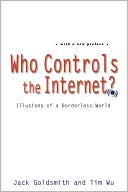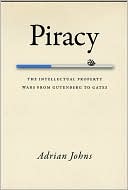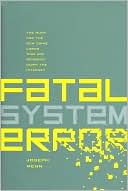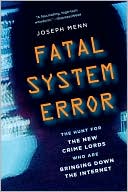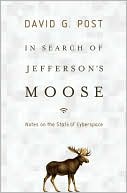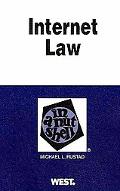Who Controls the Internet?: Illusions of a Borderless World
Search in google:
Is the Internet erasing national borders? Will the future of the Net be set by Internet engineers, rogue programmers, the United Nations, or powerful countries? Who's really in control of what's happening on the Net? In this provocative new book, Jack Goldsmith and Tim Wu tell the fascinating story of the Internet's challenge to governmental rule in the 1990s, and the ensuing battles with governments around the world. It's a book about the fate of one idea—that the Internet might liberate us forever from government, borders, and even our physical selves. We learn of Google's struggles with the French government and Yahoo's capitulation to the Chinese regime; of how the European Union sets privacy standards on the Net for the entire world; and of eBay's struggles with fraud and how it slowly learned to trust the FBI. In a decade of events the original vision is uprooted, as governments time and time again assert their power to direct the future of the Internet. The destiny of the Internet over the next decades, argue Goldsmith and Wu, will reflect the interests of powerful nations and the conflicts within and between them. While acknowledging the many attractions of the earliest visions of the Internet, the authors describe the new order, and speaking to both its surprising virtues and unavoidable vices. Far from destroying the Internet, the experience of the last decade has lead to a quiet rediscovery of some of the oldest functions and justifications for territorial government. While territorial governments have unavoidable problems, it has proven hard to replace what legitimacy governments have, and harder yet to replace the system of rule of law that controls the unchecked evils of anarchy. While the Net will change some of the ways that territorial states govern, it will not diminish the oldest and most fundamental roles of government and challenges of governance. Well written and filled with fascinating examples, including colorful portraits of many key players in Internet history, this is a work that is bound to stir heated debate in the cyberspace community. Library Journal Here is an eye-opening history of the Internet describing how cyberspace, which we think of as a borderless community, is in fact nothing of the sort. Goldman (Harvard Law Sch.; The Limits of International Law) and Wu (Columbia Law Sch.) show how different nation-states and international organizations have shaped a local Internet experience based on their own prevailing societal values. Multinational corporations trying to sell online, such as Yahoo!, Ebay, and Dow Jones, have discovered quickly and painfully that they must abide by local standards. Otherwise, their online operations will be halted by governments and competitors using a variety of often far-reaching legal maneuvers and/or high-level technology filters. China, for instance, has a countrywide firewall, and many countries and regions employ geo-ID technologies that not only enable Internet companies to personalize content for local users but also assist in targeting and blocking unwanted content emanating from specific geographic areas. Perhaps the Internet will not connect the world as quickly as Thomas L. Friedman proposes in The World Is Flat. As controversial as Friedman's, this thought-provoking work is recommended for international law and e-commerce collections in colleges as well as public libraries.-Caroline Geck, Kean Univ., Union, NJ Copyright 2006 Reed Business Information.
1Introduction : Yahoo!12Visions of a post-territorial order133The god of the Internet294Why geography matters495How governments rule the Net656China877The filesharing movement1058Virtues and vices of government control1299Consequences of borders14710Global laws16311Conclusion : globalization meets governmental coercion179
